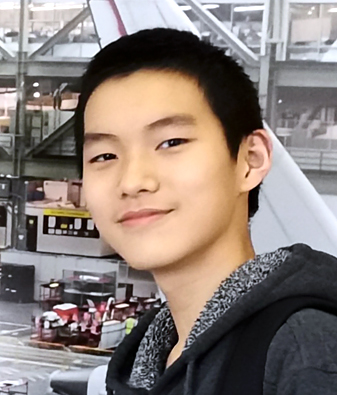Students come to U of T to explore many different subjects. But in a course called the Psychology of Student Success, they study what may be the most fascinating subject of all — themselves.
In this First-Year Foundations seminar, students absorb a wealth of scientifically validated information on how to best manage their time, avoid procrastination, develop good study habits and minimize the harms caused by social comparison. And as Ashley Waggoner Denton says, they are also very much encouraged to share their own experiences.
“Putting the course together, I had a good idea about the topics that I would like to include — ideas from psychology that are important to student success, broadly defined,” says Waggoner Denton, an associate professor, teaching stream in the Department of Psychology. “In the first few weeks, we look at time management and divide it into priority management, attention management and emotion management. But I also encourage students to reflect on why they’re at university: to take a step back and explore who they are, who they want to be and what their values are. Big picture questions.”

As an aspiring neuroscientist and computer scientist, Innis College member Markson Chen is delighted that the course’s insights into student success are all rooted in solid research. “There are many self-help books and articles out there,” he says. “But they don’t always provide evidence for the advice they give.
“You can read on the internet, for example, that the first thing you do in the morning determines the rest of the day — but is that really true? It’s important to have solid backing for your advice. And in this class, I can be sure that all the things I’m learning are scientifically supported.”
Students learn how to manage a wide array of challenges they may encounter as they navigate the transition from high school to university. Some of these have always existed, while others are particular to the modern age.
One example of the latter, says Chen, is smartphones. Like everyone else, he’s been well aware of how distracting they are; thanks to the seminar, he now has the data to prove it. “In the last class, I learned that on average, college students pick up their phones once every 15 minutes,” he says. “And studies show that even during 15 minutes of studying, most students will spend five of those minutes distracted, usually by the phone.”
We encourage students to find extracurriculars; one of the benefits of being at a huge institution is that if you’re interested in something, somebody else will be too. However, we also talk about the importance of taking advantage of the diversity that’s available; it’s been shown that diversity also goes hand in hand with feelings of belongingness. So in the course, students are encouraged to step out of their bubbles and expose themselves to people and ideas that are new to them.
Chen has also learned that smartphones create problems well beyond the realm of academics. As he says, “Research has shown that the more time you look at your phone while having a meal with your friends and family, the less happy you will be after the meal: you compare what’s going on in your own life with what’s going on in your phone.”
Waggoner Denton affirms that comparing themselves to others is a major concern for students today. “Social comparison theory goes back to the 1950s, but right now it’s very much tied to social media. That’s of course part of the discussion we have in class. We go through the theory, and talk about strategies that can be used to avoid the negative impacts that social media can have. It can be helpful for students to share their experiences, and realize that they’re not the only ones affected by these things,” she says.
Social comparison can have a domino effect that leads to other problems covered in the course. One of these is imposter syndrome — the feeling of fraudulence, of “being here by mistake.” This can negatively affect mental health, as well as students’ sense of purpose and belonging.

Waggoner Denton believes that presenting students with evidence-backed research on how they can foster that feeling of inclusion is important.
“We encourage students to find extracurriculars; one of the benefits of being at a huge institution is that if you’re interested in something, somebody else will be too. However, we also talk about the importance of taking advantage of the diversity that’s available; it’s been shown that diversity also goes hand in hand with feelings of belongingness. So in the course, students are encouraged to step out of their bubbles and expose themselves to people and ideas that are new to them.”
Not only do students in the seminar gain a healthy respect for the scientific method through the works of others — they also do research themselves. Their major class project is a video, in which they work in teams to present research on a topic that resonates with them. Waggoner Denton is hopeful that these videos may soon be available to students outside the class, so they can profit from class insights as well.
It’s a wonderful course. Students spend all their time working on assignments and going to lectures. At the end of the day, we’re sometimes too mentally exhausted to learn anything new, and have no energy left to think about what we are doing or how we can improve our habits. This course lets us do that.
This could be of great benefit as students from many disciplines outside psychology are interested in enrolling. “Part of what makes the class great is that it’s a small seminar,” says Waggoner Denton. “Opening up, sharing and learning from one another’s experiences is such an important part of it, and that would be lost if I were to teach it to 200 students.”
Waggoner Denton also learns from the students herself. Now in her second year of teaching the course, she uses their feedback to keep its content fresh and valid. This ensures that students leave the course with up-to-date skills that will not only help them in school, but also in the workplace and relationships they will encounter beyond university.
“It’s a wonderful course,” says Chen. “Students spend all their time working on assignments and going to lectures. At the end of the day, we’re sometimes too mentally exhausted to learn anything new, and have no energy left to think about what we are doing or how we can improve our habits. This course lets us do that.”

